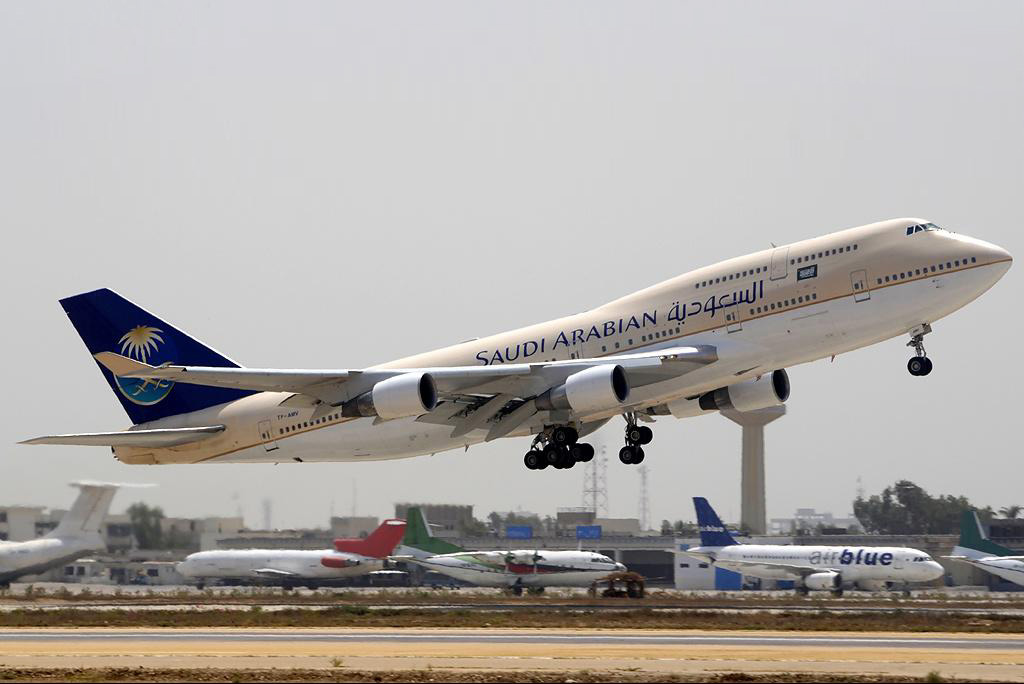Airports will be turned into companies before they are transferred to the Public Investment Fund to help improve accountability, said Faisal AlSugair, Chairman of Saudi Civil Aviation Holding. The changes are also aimed at strengthening supervision, since the main body of civil administration will no longer combine the duties of an operator and regulator.
The main goal of Riyadh is to attract investments in airports, as the country intends to revive the aviation industry, which was eclipsed by competitors in Dubai and Qatar. The country's authorities are also going to privatize seaports, as low oil prices have influenced plans for government spending.
The Welfare Fund will take control of the Saudi Civil Aviation Holding, which will act as an umbrella company (the parent company serving as an employer for independent contractors who work under a temporary contract, usually through a specialized employment agency) for airport operators, said AlSugair. The holding company will be worth "billions of dollars", he said.
Shares of the airports will be sold out when the operating companies become stable, this can happen before they are transferred to the Welfare Fund.
There are many options for privatization, including initial public offerings and the sale of private shares, AlSugair said. Different airports can be sold in different ways, and the government has yet to decide what shares will it hold. PricewaterhouseCoopers and Ernst & Young advice on the sale process and on the transformation of operators into companies.
In the end, sales could be hampered by a "very "bearish" market", AlSugair said. "I would not be surprised if there is less interest unless there are very good offers of prices due to the situation on the market", he said. This can lead to the fact that the sale will be re-submitted or postponed, he said.
AlSugair refused to comment on the level of interest in the current competitions, including with regard to airports Qassim, Hail, Ahsa and Taif, as he is not directly participating in their fate. As a rule, the majority of applicants for the airports of Saudi Arabia are European and international airport operators in partnership with contractors and investors, he said.
The country intends to transform Dammam airport into a company by July 1, and in the fourth quarter proceed with smaller airports and the Saudi Academy of Civil Aviation, a provider of training services, Al Sugair said.
source: bloomberg.com
The main goal of Riyadh is to attract investments in airports, as the country intends to revive the aviation industry, which was eclipsed by competitors in Dubai and Qatar. The country's authorities are also going to privatize seaports, as low oil prices have influenced plans for government spending.
The Welfare Fund will take control of the Saudi Civil Aviation Holding, which will act as an umbrella company (the parent company serving as an employer for independent contractors who work under a temporary contract, usually through a specialized employment agency) for airport operators, said AlSugair. The holding company will be worth "billions of dollars", he said.
Shares of the airports will be sold out when the operating companies become stable, this can happen before they are transferred to the Welfare Fund.
There are many options for privatization, including initial public offerings and the sale of private shares, AlSugair said. Different airports can be sold in different ways, and the government has yet to decide what shares will it hold. PricewaterhouseCoopers and Ernst & Young advice on the sale process and on the transformation of operators into companies.
In the end, sales could be hampered by a "very "bearish" market", AlSugair said. "I would not be surprised if there is less interest unless there are very good offers of prices due to the situation on the market", he said. This can lead to the fact that the sale will be re-submitted or postponed, he said.
AlSugair refused to comment on the level of interest in the current competitions, including with regard to airports Qassim, Hail, Ahsa and Taif, as he is not directly participating in their fate. As a rule, the majority of applicants for the airports of Saudi Arabia are European and international airport operators in partnership with contractors and investors, he said.
The country intends to transform Dammam airport into a company by July 1, and in the fourth quarter proceed with smaller airports and the Saudi Academy of Civil Aviation, a provider of training services, Al Sugair said.
source: bloomberg.com





